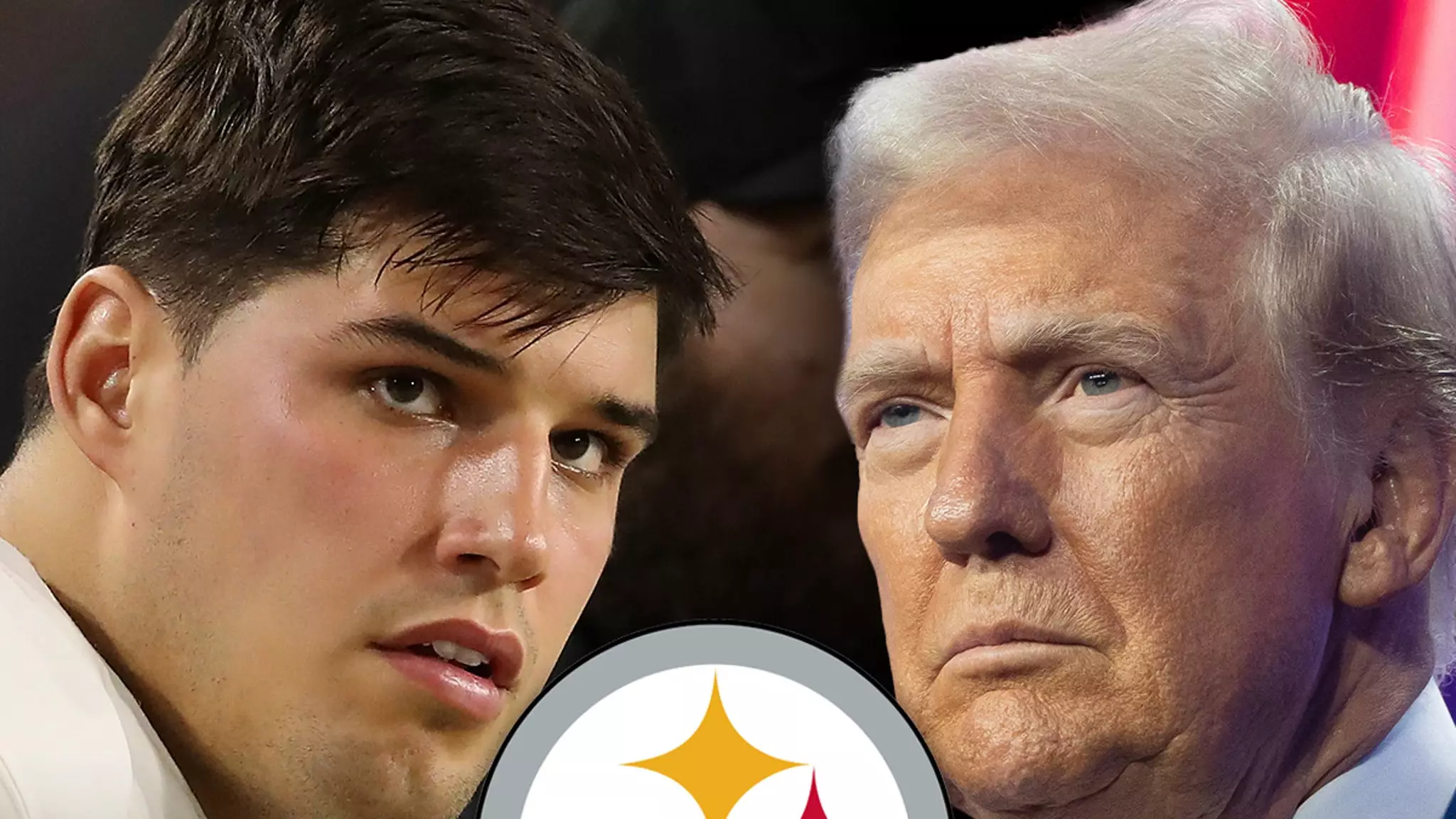The realm of sports has always been a tapestry interwoven with various societal influences, including politics. Recent events surrounding the Pittsburgh Steelers quarterback, Mason Rudolph, exemplify this complex relationship. Rudolph’s appearance at a rally supporting President Donald Trump, alongside fellow Steelers player Miles Killebrew and former player Rocky Bleier, ignited a firestorm of reactions from the fan base. The event offered a window not only into the political leanings of these athletes but also revealed the intricate balance sports franchises must maintain when personal ideologies clash with public sentiment.
The Steelers’ Official Stance
In response to the divergent reactions, the Pittsburgh Steelers organization felt the need to clarify its position. They issued a statement emphasizing that the political beliefs of individual players do not reflect the organization’s stance. This carefully worded response underscores a crucial aspect of team dynamics: the importance of unity amidst diversity of opinion. The overt step taken by the Steelers highlights a larger trend in professional sports where franchises often find themselves caught in the crossfire between athletes’ personal beliefs and the varied perspectives of their fan base.
Public Perception and Fan Divide
Rudolph’s political engagement seemingly drew ire from certain fan segments, particularly season ticket holders who felt alienated by his visible support for a controversial figure. This situation elucidates how deeply personal brand affiliation can influence fan support; many are not merely spectators but emotionally invested stakeholders. By expressing their political leanings, athletes like Rudolph risk polarizing their audience, stirring debates that often transcend the playing field. It’s a delicate balancing act: while athletes possess the right to express their beliefs, franchises are compelled to maintain a broad appeal to their fan base, which can include diverse political affiliations.
The Role of Politicians in Sports
Notably, President Trump’s praise for Rudolph at the rally added another layer to this already intricate situation. His comments regarding Rudolph’s potential future as a starting quarterback created a speculative buzz that transcended sports news into political discourse. This crossover reflects the growing trend of sports figures and politicians aligning themselves for mutual benefit—be it through uplifting narratives or shared audiences. It raises pertinent questions about the influence of political figures in sports and vice versa. Are athletes becoming mere pawns in a larger political game?
The Power of Choice
Ultimately, what remains evident in this scenario is the power of individual choices. Rudolph, Killebrew, and Bleier made a conscious decision to engage with a political figure, and they have quickly faced the repercussions of that decision in the form of public scrutiny. The Steelers’ response reminds fans that behind the helmets and jerseys, these are individuals with beliefs and choices that inevitably come to the forefront. However, as their affiliations create ripples in fandom, organizations like the Steelers must navigate these waters carefully, striving to unite a fan base that is anything but homogenous.
In a world where the lines between sports and politics blur evermore, the Pittsburgh Steelers’ situation serves as a reflective mirror on the socio-political climate of our times, revealing the complexities of identity, allegiance, and public perception.

Leave a Reply